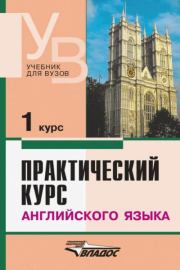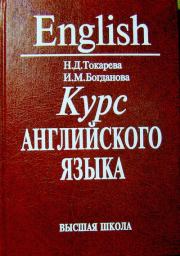В Д Аракин - Практический курс английского языка.1 курс
 | Название: | Практический курс английского языка.1 курс |
Автор: | В Д Аракин | |
Жанр: | Иностранные языки, Учебники и пособия ВУЗов | |
Изадано в серии: | неизвестно | |
Издательство: | неизвестно | |
Год издания: | - | |
ISBN: | неизвестно | |
Отзывы: | Комментировать | |
Рейтинг: | ||
Поделись книгой с друзьями! Помощь сайту: донат на оплату сервера | ||
Краткое содержание книги "Практический курс английского языка.1 курс"
Серия учебников предназначена для студентов педагогических вузов и предполагает преемственность в изучении английского языка с I по V курс. Цель учебника - обучение устной речи на основе автоматизированных речевых навыков. В пятом издании (четвертое - 1997 г.) переработан ряд реалий в соответствии с теми изменениями, которые имели место в учебном процессе английского языка за последние годы.
Читаем онлайн "Практический курс английского языка.1 курс". [Страница - 181]
stressed ... fact that... school would be open to all... workers "regardless of
colour."
Robinson's life before he came to that school had been full of ... hardships.
His home was in one of... southern states where he had become ... instrument-
maker. ... unemployment caught
up with him, and he went to Detroit where ... newspapers prorr ised ...
employment. In Detroit ... new period in his life began- . endless search for ...
work. He managed to enter ... technic* school. He was ... only coloured
student there. ... newspapei made the most of it and even featured his
photograph at... worl ... papers, however, did not mention ... fact that he was
paid les than ... white workers, and they kept quiet about ... animosit that he
was met with every morning.
135.
Use the Past Indefinite or the Past Perfect instead of the infin tives in brackets:
1. Margot (to go) to the door and (to lock) it, and (to return) with the key. 2.
He sighed again and again, like one who (to escape) from danger. 3. Then I (to
search) for a piece of paper and a pencil, and I (to write) a message for the maid.
He (to make) tea and (to eat) the biscuits which Mrs. Aberdeen (to bring) him. 5.
Ansell (to give) an angry sigh, and at that moment there (to be) a tap on the door,
6. When the cinema (to be) over they (to go) for a walk across the dark, damp
fields. 7. The doorj (to open). A tall young woman (to stand) framed in the light
thatj (to fall) from the passage. j3?Cassie (to spend) the night at home,j and on
entering the dining-room (to glance) at the space above1 the fire, He (to walk)
about our sitting-room all afternoon,! murmuriifg to himself. 10. It (to be) all so
sudden that for a; moment no one (to know) what (to happen). 11. He (to tell)
mej that they (to be) at the same public school and (to be) friends j ever since.
12. At the age of seventy-four he (to be) excited as ai boy about his expedition.
13. Near the door he (to see) the man he (to notice) at the station. 14. The house
(to be) much smaller than he (to think) at first.
136.
Change the following sentences into disjunctive questions:
1. He is having dinner now. 2. They usually have dinner at six. 3. She has a
music lesson every Wednesday. 4. They had a quarrel yesterday. 5. She is having
a music lesson now. 6. He had to take four exams. 7. Next week you'll have to
prepare for your last exam. 8. She had to wait for a long time. 9. We have. to
arrange everything by tomorrow. 10. He had to pay a lot of j money for this TV-
set. 11. They will have to start tomorrow morning. 12. He has to work a lot at his
English.
137.
Use the Past Indefinite, the Past Continuous or the Past Perfect instead of the
infinitives in brackets:
1. Yes, Hatte? What you (to say)? 2. He even (not to count) the money that
Lammiter (to hold) out to him. 3. I (to look) at her. She (to smile) to herself and
(not to answer) my question at once. I (to repeat) it. 4. For some time she (not to
realize) where she (to be) and what (to happen). 5. Then she (to get) up and (to
go) to the kitchen and (to open) the fridge. 6. Toby and Michael (to smile) at
each other and (to begin) to walk slowly towards the lake. 7. The silence in the
room (to tell) that the rain (to stop). 8. She (can) not think why she (not to think)
of this before, she (to say). 9. He (to go) away on the very day I (to arrive). 10.
My mother (to make) sandwiches in the kitchen and (not to hear) the bell. 11. He
(to go) to school for the first time with a bunch of flowers in his hand, and it (to
seem) to him that everyone (to turn) to look at him. 12. After he (to leave) school
he (can) not find a job and (to decide) to go to New York. 13. The grass (to be)
damp; it (to tell) us that rain (to fall) in the night. 14. Now he (to look) at me
with wide open eyes. 15. He (can) not help thinking that he (to see) that face
somewhere before. 16. After he (to read) "The Gadfly" he (to tell) all his friends
that he never (to read) a better book. 17. Roger (to say) he (to come) back in an
hour. 18. She (to turn) half about and (to see) that the rain (to stop) and it (to be)
a little brighter outside. 19. After the war they (to part) and he (to tell) me that he
(not to see) her since. 20. She (to go) back to take her gloves and bag which she
(to leave) on the hall table. 21. The storm (to pass) and the sun (to shine) on the
green leaves of the trees. 22. He (to look) through the window and (not to seem)
to notice me.
138.
Use the Past Indefinite, the Past Continnous or the Past Perfect Continuous
instead of the infinitives in brackets:
1. He (to read) his evening paper as usual when a friend of his called him on
the telephone. 2. He (to read) before the fire for half an hour when the telephone
rang. 3. When we went to see them last night, they (to play) chess; they said they
(to play) since six o'clock. 4. She felt chilly after she (to swim) for an hour. 5.
They told me that Ben still (to swim). 6. The boys (to play) football and did not
hear their mother calling them from the window. 7. The boys were tired because
they (to play) football. 8. We (to work) in silence for some time when John
spoke.
17 Заказ 1271
505
9. He (to look) at the fire and (to think) of something. 10. He (to look) three
or five minutes at the fire and then turned his face to me; it was sad. 11. At last I
found the book, which I (to look) for all day. 12. He asked me what I (to look)
for. 13. When I entered the room Sir George (to talk) in a loud voice. 14. They
told me Sir George just (to talk) about me. 15. Monty (to tremble) too in fits
which shook his body from top to bottom. 16, She (to put) aside the book she (to
read) and (to stand) up from the table.
139.
Translate into Russian and then change the following sentences into indirect
speech:
1. How long have you been sitting here? 2. It has been raining since morning,
and we cannot go out. 3. She has been teaching in that school since 1968. 4. He
has been working since I came here. 5. Come in! We have just been
--">Книги схожие с «Практический курс английского языка.1 курс» по жанру, серии, автору или названию:
 |
| Наталия Дмитриевна Токарева, Иоланта Михайловна Богданова - English. Курс английского языка Жанр: Учебники и пособия: прочее Год издания: 2002 |
 |
| Владимир Константинович Коккинаки - Курс на Восток Жанр: Биографии и Мемуары Год издания: 1939 |





